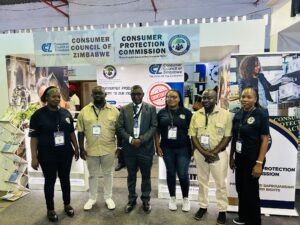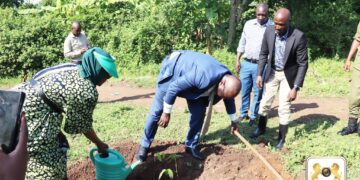OPINION
Ugandans continue to grapple with the challenge of substandard products in both the clean energy and agricultural sectors. Despite several initiatives aimed at improving product quality and consumer protection, progress remains slow due to weak enforcement, regulatory delays, and limited public awareness about consumer rights and product standards. These challenges are hindering the country’s progress toward clean energy access, sustainable agriculture, and environmental resilience.

According to the Uganda National Bureau of Standards (UNBS), as of 2023, an estimated 58% of products on the Ugandan market were substandard, an increase of 7% from the previous year. In early 2024, the Auditor General raised concerns over the ineffective efforts by government agencies to curb the influx of substandard goods, noting that Uganda risks becoming a dumping ground for poor-quality products. This situation not only endangers lives but also undermines legitimate businesses and trade competitiveness.
In March 2024, private sector and civil society stakeholders promoting green economic alternatives and human rights across Uganda and East Africa submitted a petition to the Speaker of Parliament. They called for the urgent presentation and enactment of the Consumer Protection and Management Bill, which was initially proposed in June 2023. This followed the submission of a memorandum to the Minister of Trade, Industry and Cooperatives, emphasizing the need for robust consumer protection legislation.
The proposals, developed through extensive research and consultation, outline concrete actions to address the persistent challenges faced by consumers, particularly in the clean energy and agricultural sectors, which are vital to Uganda’s economy. In February 2025, the Deputy Speaker of Parliament directed the Attorney General to update the House on the status of the proposed Consumer Protection law. This directive came after legislators raised concerns about high and often unexplained insurance charges imposed by financial institutions on loans. Yet, despite these developments, the bill has not been enacted to date.

The delay in passing this legislation has had significant consequences for consumers, especially in underserved rural communities. In the clean energy sector, the market remains flooded with low-quality products such as solar panels, batteries, and clean cooking stoves. Consumers often struggle to find legal recourse when these products fail, with no clear avenues for refunds, repairs, or replacements.
Moreover, the absence of pricing guidelines has led to price exploitation, with some vendors charging inflated prices for clean energy products in remote areas. High import duties further exacerbate the situation by making renewable technologies unaffordable for most Ugandans.
As for the agricultural sector, farmers face serious challenges accessing quality inputs. The market is rife with counterfeit seeds, substandard agrochemicals, and fake veterinary drugs. For example, fungicides such as Mancozeb and other chemicals, sometimes misrepresented or poorly stored can pose health and environmental hazards. Without a strong legal framework, fraudulent agro-dealers continue to thrive, contributing to reduced crop yields, financial losses, and rising food insecurity. Additionally, high interest rates limit farmers’ access to affordable credit, stifling their capacity to invest in sustainable practices.

The Consumer Protection and Management Bill is essential for safeguarding the rights of consumers, ensuring access to high-quality and fairly priced products, and promoting accountability in the marketplace. Once enacted, the law will protect citizens from fraudulent business practices, false advertising, and exploitative pricing, thereby fostering consumer confidence and supporting economic development.
In conclusion, the Ugandan government must prioritize the enactment of this crucial legislation. Strengthening consumer protections in the clean energy and agriculture sectors will significantly improve the quality of life for millions, promote sustainable development, and enhance the country’s economic resilience.
By Atuhaire Olivia,
The writer is a Ugandan Environmentalist.
E-mail: oliveatuhaire63@gmail.com








































